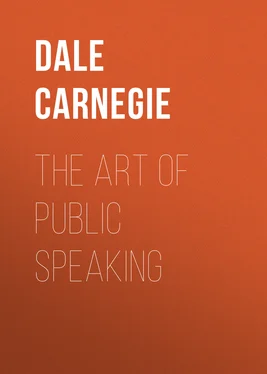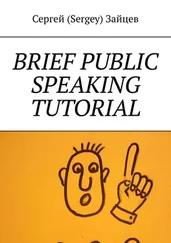1 ...7 8 9 11 12 13 ...26 3. TRUE WORTH is in BEING—NOT SEEMING— in doing each day that goes by SOME LITTLE GOOD, not in DREAMING of GREAT THINGS to do by and by. For whatever men say in their BLINDNESS, and in spite of the FOLLIES of YOUTH, there is nothing so KINGLY as KINDNESS, and nothing so ROYAL as TRUTH.— Anonymous .
4. To get a natural effect, where would you use slow and where fast tempo in the following?
See him there, cold and gray,
Watch him as he tries to play;
No, he doesn't know the way—
He began to learn too late.
She's a grim old hag, is Fate,
For she let him have his pile,
Smiling to herself the while,
Knowing what the cost would be,
When he'd found the Golden Key.
Multimillionaire is he,
Many times more rich than we;
But at that I wouldn't trade
With the bargain that he made.
Came here many years ago,
Not a person did he know;
Had the money-hunger bad—
Mad for money, piggish mad;
Didn't let a joy divert him,
Didn't let a sorrow hurt him,
Let his friends and kin desert him,
While he planned and plugged and hurried
On his quest for gold and power.
Every single wakeful hour
With a money thought he'd dower;
All the while as he grew older,
And grew bolder, he grew colder.
And he thought that some day
He would take the time to play;
But, say—he was wrong.
Life's a song;
In the spring
Youth can sing and can fling;
But joys wing
When we're older,
Like birds when it's colder.
The roses were red as he went rushing by,
And glorious tapestries hung in the sky,
And the clover was waving
'Neath honey-bees' slaving;
A bird over there
Roundelayed a soft air;
But the man couldn't spare
Time for gathering flowers,
Or resting in bowers,
Or gazing at skies
That gladdened the eyes.
So he kept on and swept on
Through mean, sordid years.
Now he's up to his ears
In the choicest of stocks.
He owns endless blocks
Of houses and shops,
And the stream never stops
Pouring into his banks.
I suppose that he ranks
Pretty near to the top.
What I have wouldn't sop
His ambition one tittle;
And yet with my little
I don't care to trade
With the bargain he made.
Just watch him to-day—
See him trying to play.
He's come back for blue skies.
But they're in a new guise—
Winter's here, all is gray,
The birds are away,
The meadows are brown,
The leaves lie aground,
And the gay brook that wound
With a swirling and whirling
Of waters, is furling
Its bosom in ice.
And he hasn't the price,
With all of his gold,
To buy what he sold.
He knows now the cost
Of the spring-time he lost,
Of the flowers he tossed
From his way,
And, say,
He'd pay
Any price if the day
Could be made not so gray.
He can't play.
—Herbert Kaufman. Used by permission of Everybody's Magazine .
Change of Tempo Prevents Monotony
The canary in the cage before the window is adding to the beauty and charm of his singing by a continual change of tempo. If King Solomon had been an orator he undoubtedly would have gathered wisdom from the song of the wild birds as well as from the bees. Imagine a song written with but quarter notes. Imagine an auto with only one speed.
1. Note the change of tempo indicated in the following, and how it gives a pleasing variety. Read it aloud. (Fast tempo is indicated by italics, slow by small capitals.)
And he thought that some day he would take the time to play; but, say —HE WAS WRONG. LIFE'S A SONG; in the SPRING YOUTH can SING and can FLING; BUT JOYS WING WHEN WE'RE OLDER, LIKE THE BIRDS when it's COLDER. The roses were red as he went rushing by, and glorious tapestries hung in the sky.
2. Turn to "Fools Gold," on Page 42, and deliver it in an unvaried tempo: note how monotonous is the result. This poem requires a great many changes of tempo, and is an excellent one for practise.
3. Use the changes of tempo indicated in the following, noting how they prevent monotony. Where no change of tempo is indicated, use a moderate speed. Too much of variety would really be a return to monotony.
"A MOB KILLS THE WRONG MAN" was flashed in a newspaper headline lately. The mob is an IRRESPONSIBLE, UNTHINKING MASS. It always destroys BUT NEVER CONSTRUCTS. It criticises BUT NEVER CREATES.
Utter a great truth AND THE MOB WILL HATE YOU. See how it condemned DANTE to EXILE. Encounter the dangers of the unknown world for its benefit , AND THE MOB WILL DECLARE YOU CRAZY. It ridiculed COLUMBUS, and for discovering a new world GAVE HIM PRISON AND CHAINS.
Write a poem to thrill human hearts with pleasure , AND THE MOB WILL ALLOW YOU TO GO HUNGRY: THE BLIND HOMER BEGGED BREAD THROUGH THE STREETS. Invent a machine to save labor AND THE MOB WILL DECLARE YOU ITS ENEMY. Less than a hundred years ago a furious rabble smashed Thimonier's invention, the sewing machine.
BUILD A STEAMSHIP TO CARRY MERCHANDISE AND ACCELERATE TRAVEL and the mob will call you a fool . A MOB LINED THE SHORES OF THE HUDSON RIVER TO LAUGH AT THE MAIDEN ATTEMPT OF "FULTON'S FOLLY," as they called his little steamboat.
Emerson says: "A mob is a society of bodies voluntarily bereaving themselves of reason and traversing its work. The mob is man voluntarily descended to the nature of the beast. Its fit hour of activity is NIGHT. ITS ACTIONS ARE INSANE, like its whole constitution. It persecutes a principle —IT WOULD WHIP A RIGHT. It would tar and feather justice by inflicting fire and outrage upon the house and persons of those who have these."
The mob spirit stalks abroad in our land today. Every week gives a fresh victim to its malignant cry for blood. There were 48 persons killed by mobs in the United States in 1913; 64 in 1912, and 71 in 1911. Among the 48 last year were a woman and a child. Two victims were proven innocent after their death.
IN 399 B.C. A DEMAGOG APPEALED TO THE POPULAR MOB TO HAVE SOCRATES PUT TO DEATH and he was sentenced to the hemlock cup. FOURTEEN HUNDRED YEARS AFTERWARD AN ENTHUSIAST APPEALED TO THE POPULAR MOB and all Europe plunged into the Holy Land to kill and mangle the heathen. In the seventeenth century a demagog appealed to the ignorance of men AND TWENTY PEOPLE WERE EXECUTED AT SALEM, MASS., WITHIN SIX MONTHS FOR WITCHCRAFT. Two thousand years ago the mob yelled , " RELEASE UNTO US BARABBAS "—AND BARABBAS WAS A MURDERER!
— From an Editorial by D.C. in "Leslie's Weekly," by permission.
Present-day business is as unlike OLD-TIME BUSINESS as the OLD-TIME OX-CART is unlike the present-day locomotive. INVENTION has made the whole world over again. The railroad, telegraph, telephone have bound the people of MODERN NATIONS into FAMILIES. To do the business of these closely knit millions in every modern country GREAT BUSINESS CONCERNS CAME INTO BEING. What we call big business is the CHILD OF THE ECONOMIC PROGRESS OF MANKIND. So warfare to destroy big business is FOOLISH BECAUSE IT CAN NOT SUCCEED and wicked BECAUSE IT OUGHT NOT TO SUCCEED. Warfare to destroy big business does not hurt big business, which always comes out on top , SO MUCH AS IT HURTS ALL OTHER BUSINESS WHICH, IN SUCH A WARFARE, NEVER COME OUT ON TOP.—A.J. Beveridge.
Читать дальше












